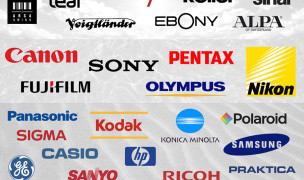 10 Terms
10 TermsHome > Terms > English (EN) > trade area
trade area
In a globalizing economy, it is perhaps surprising that countries increasingly trade with their nearest neighbors. One explanation is geography: as countries have lowered their tariff barriers, the relatively greater importance of transport costs makes proximity matter more. According to new trade theory, this also produces gains from economies of scale. But another reason for the fast growth in trade among nearby countries may be less benign. The proliferation of regional trade agreements may be causing neighbors to trade with each other when it would be more efficient for them to export to and import from afar. In the past 50 years more than 150 regional trade agreements have been notified to the general agreement on tariffs and trade (GATT) or the world trade organization (WTO), most of which are still in force. Roughly half of these, including some revisions of previous deals, have been set up since 1990. The best-known are the European union, the North American Free-Trade Agreement (NAFTA) and Mercosur in South America. There are dozens of other examples. Economists have generally been unenthusiastic about regionalism, for two reasons. First, they worry that preferential tariffs will cause trade to flow in inefficient ways, a process known as trade diversion. In a perfect world, trade patterns should be determined by comparative advantage: the comparative cost of making different goods yourself as opposed to buying them from various countries. If the United States imports Mexican televisions merely because the Mexican goods are tariff-free, even if Malaysia has a comparative advantage in television manufacturing, the main benefit of trade will be lost. The second concern is that regionalism will impede efforts to liberalize trade throughout the world. One prominent critic, Jagdish Bhagwati, an economist at Columbia University in New York, has famously said that regional trade areas are “stumbling blocks” rather than “building blocks” in the freeing of global trade. There is no clear-cut theoretical answer to the question of whether regional trade agreements are good or bad, and the empirical findings are hotly disputed. In general, though, it seems likely that it is better to have regional groups that are open to the rest of the world than groups that are closed.
- Part of Speech: noun
- Synonym(s):
- Blossary:
- Industry/Domain: Economy
- Category: Economics
- Company: The Economist
- Product:
- Acronym-Abbreviation:
Other Languages:
Member comments
Terms in the News
Billy Morgan
Sports; Snowboarding
The British snowboarder Billy Morgan has landed the sport’s first ever 1800 quadruple cork. The rider, who represented Great Britain in the 2014 Winter Olympics in Sochi, was in Livigno, Italy, when he achieved the man-oeuvre. It involves flipping four times, while body also spins with five complete rotations on a sideways or downward-facing axis. The trick ...
Marzieh Afkham
Broadcasting & receiving; News
Marzieh Afkham, who is the country’s first foreign ministry spokeswoman, will head a mission in east Asia, the state news agency reported. It is not clear to which country she will be posted as her appointment has yet to be announced officially. Afkham will only be the second female ambassador Iran has had. Under the last shah’s rule, Mehrangiz Dolatshahi, a ...
Weekly Packet
Language; Online services; Slang; Internet
Weekly Packet or "Paquete Semanal" as it is known in Cuba is a term used by Cubans to describe the information that is gathered from the internet outside of Cuba and saved onto hard drives to be transported into Cuba itself. Weekly Packets are then sold to Cuban's without internet access, allowing them to obtain information just days - and sometimes hours - after it ...
Asian Infrastructure Investment Bank (AIIB)
Banking; Investment banking
The Asian Infrastructure Investment Bank (AIIB) is an international financial institution established to address the need in Asia for infrastructure development. According to the Asian Development Bank, Asia needs $800 billion each year for roads, ports, power plants or other infrastructure projects before 2020. Originally proposed by China in 2013, a signing ...
Spartan
Online services; Internet
Spartan is the codename given to the new Microsoft Windows 10 browser that will replace Microsoft Windows Internet Explorer. The new browser will be built from the ground up and disregard any code from the IE platform. It has a new rendering engine that is built to be compatible with how the web is written today. The name Spartan is named after the ...
Featured Terms
2016 Cadillac CTS-V
Cadillac has pulled the covers off of its flagship performance sedan several weeks ahead of its official public debut at the 2015 North American ...
Contributor
Featured blossaries
stanley soerianto
0
Terms
107
Blossaries
6
Followers
Top 10 Most Popular Search Engines
 10 Terms
10 Terms
Browers Terms By Category
- Prevention & protection(6450)
- Fire fighting(286)
Fire safety(6736) Terms
- ISO standards(4935)
- Six Sigma(581)
- Capability maturity model integration(216)
Quality management(5732) Terms
- Physical geography(2496)
- Geography(671)
- Cities & towns(554)
- Countries & Territories(515)
- Capitals(283)
- Human geography(103)
Geography(4630) Terms
- Poker(470)
- Chess(315)
- Bingo(205)
- Consoles(165)
- Computer games(126)
- Gaming accessories(9)



